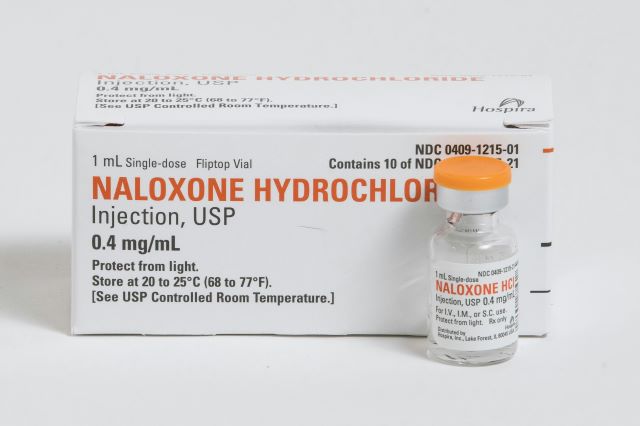Friends and Neighbors,
Drugs like fentanyl are hurting our families, friends, and communities. Those who are living with the pain of substance use disorder are feeling the most harm due to a lack of treatment and support. This session, the legislature expanded our approach with bipartisan support, ensuring we are protecting our youth, expanding the skilled behavioral health workforce, and providing critical care for people living with untreated addiction. We must also provide training, education, and funding, to make sure treatment is accessible, the dangers are fully understood, and to make sure we are providing off-ramps through the criminal legal system to keep treatment as an option and support recovery.
This legislative session, I prioritized support for community and public safety, tools for education and prevention, and improving our behavioral health workforce and led the effort with my colleagues to address the opioid and fentanyl crisis. Additionally, we increased our state’s efforts in outreach, crisis response, harm reduction, and treatment. This problem will continue to require a multi-pronged approach as we work towards a Washington that reduces harm to individuals and communities, centers recovery, and helps heal families. Further, in addition to the $215 million invested this year in treatment, recovery support services, and crisis response. We invested $35 million on the capital side to increase treatment capacity, working with our tribal partners.
Community and Public Safety
We prioritized child safety and family support through Senate Bill 6109, which gives judges, social workers, and families clarity on the risks associated with high-potency synthetic opioids in child welfare proceedings.
Additionally, the legislature expanded cooperation between state and local governments to ensure people with tribal warrants cannot evade justice, a necessary step to help address the trafficking of young people who need behavioral health treatment. Under Washington law, a tribal warrant could be issued, and the suspect could flee to non-Tribal lands in Washington, evading capture. Passing Senate Bill 6146 helps fix this problem.
Drug-detecting dogs can save lives but currently don’t receive training in fentanyl detection. Under House Bill 1635, the Criminal Justice Training Commission will develop model standards for the training and certification of canine teams to detect fentanyl.
The supplemental operating budget also reflected the need for improved community safety by allocating an additional $12.5 million toward child welfare.
Education and Prevention
Our young people are dying from fentanyl, sometimes without even knowing they are taking a dangerous drug. Getting a pill from a friend can lead to tragic outcomes. I introduced House Bill 1956 to direct the Department of Health to create a statewide drug overdose prevention and awareness campaign and a K-12 substance use prevention and awareness campaign. It also requires that health standards be updated in schools to include opioids, fentanyl, and other drugs on the horizon and the danger inherent.

(Photo Credit: LSS Photography)
Similarly, I developed and worked on House Bill 2112 which requires our colleges, universities, and other higher education institutions to provide fentanyl test strips, naloxone, and education, prevention, and awareness programs so that their communities are prepared to deal with this epidemic. The intent is to save lives.
With the fentanyl epidemic touching every corner of Washington, it’s important that the public is well-educated and that everyone is getting accurate, clear information. Under House Bill 2396, there will be minimum standards for public outreach campaigns, jails are required to provide information to individuals upon release, and the Department of Health must compile resources on decontaminating motor vehicles.
Senate Bill 5906 requires the Department of Health to develop and maintain an ongoing overdose prevention campaign so that the public is educated on the dangers of fentanyl and other synthetic opioids.
To help our tribal partners continue their great work addressing opioids and substance use disorder, Senate Bill 6099 requires 20 percent of the opioid abatement settlement account to be directed to a Tribal Prevention and Treatment Account.
The final Supplemental Operating Budget invested $4.4 million into school-based prevention and intervention, helping us protect and care for our students as they face the dangers of opioids.
Recovery and Support.
Young adults are often discharged from inpatient treatment without support, including a place to go, resulting in homelessness. House Bill 1929 establishes the Post-Inpatient Housing Program, which will provide crucial support and housing for young adults with behavioral health needs until they are 24. This innovative approach helps them transition smoothly back into life and reduces the risk of falling back into homelessness.
To further support recovery, the budget invested an additional $750,000 to support housing for young people in recovery and $5.4 million for tribal support and outreach.
Planning, Infrastructure & Workforce
Because of the turnover in behavioral health fields, we need to do more to not only recruit and retain workers but also ensure that we’re comprehensively addressing inequities in our behavioral health care system. House Bill 1946 establishes a scholarship program to improve behavioral healthcare delivery in our state to ensure funding is available for those who are interested and requiring scholarship recipients to work in rural and underserved areas. I worked closely with my colleague on this bill.

(Photo Credit: LSS Photography)
More behavioral health treatment centers are needed. House Bill 2075 helps streamline the licensing for Indian health providers, removes unnecessary requirements, and improves access to behavioral health treatment.
We have added many new basic law enforcement academy classes over the last couple of years and developed regional training centers. The Basic Law Enforcement Academy still has a waiting list, forcing many communities to look for other ways to get more officers trained. Senate Bill 6301 allows donations of money or property to fund basic law enforcement academy classes so that local jurisdictions can get highly trained officers out into communities.
The operating budget put an additional $4 million toward opioid response data dashboards and systems and $4 million for opioid workforce grants. Further, I sought out a grant for the Tacoma Pierce County Health Department to develop a model tool kit on prevention and education programs across our State.
Outreach, Crisis Response & Harm Reduction
Right now, only larger high schools are required to have opioid overdose reversal medications on hand. Senate Bill 5804 responds to the increase in fentanyl use and drug poisonings due to unintentional use by requiring these medications at all schools.

Standing orders are a tool that can be used to provide support in communities that are struggling. When an urgent public health crisis strikes, we need to have the flexibility to use every tool available. Senate Bill 6095 allows the Secretary of Health to issue standing orders or prescriptions for a drug, device, or biological product to control and prevent the spread of infectious, non-infectious diseases or threats to public health – including opioid overdose reversal medication.
We allocated $8.7 million of Operating Budget funds towards outreach and crisis response pilot programs and $6.2 million toward outreach and prevention.
Treatment
Tribal involvement in the state behavioral health system can only lead to improvements, as they have highly trained staff who understand the unique cultural needs of tribal communities. House Bill 1877 ensures Tribes, Indian health care providers, and tribal entities are included in the Involuntary Treatment Act process and requirements.
Too often, patients are kicked out of treatment or denied treatment when they are seeking it. Most people who want treatment for substance use disorder (SUD) don’t get it. Senate Bill 6228 requires at least 14 days of inpatient SUD treatment for all health plans and requires updated policies for transferring or discharging a patient without their consent, while also requiring clinically appropriate treatment education for people seeking treatment for substance use disorder.
The Operating Budget invests an additional $22.4 million toward access to treatment and public health supplies, $2.5 million toward law enforcement-assisted diversion, and $133.9 million for Medications for Opioid Use Disorder (MOUD) Programs for Incarcerated Individuals. The Capital Budget adds $83.6 million to increase wellness, recovery center, regional needs grants, and health service center funding.
In addition, access to naloxone at our public libraries to save lives is critical. I’m proud we funded the effort that I led to protect and save lives in these important public spaces.
I am proud of the intentional work we accomplished this year to address the opioid and fentanyl crisis that is a scourge in our communities. We still have more work to do to adequately protect communities, help people experiencing substance use disorder, and heal families. I will continue to lead with my colleagues, working to bring in more funding, more policy support, and more hope for all of our neighbors dealing with this crisis.
In the meantime, I want to hear from you. Please reach out with ideas, thoughts, concerns, or questions.
In hope,

Rep. Mari Leavitt
